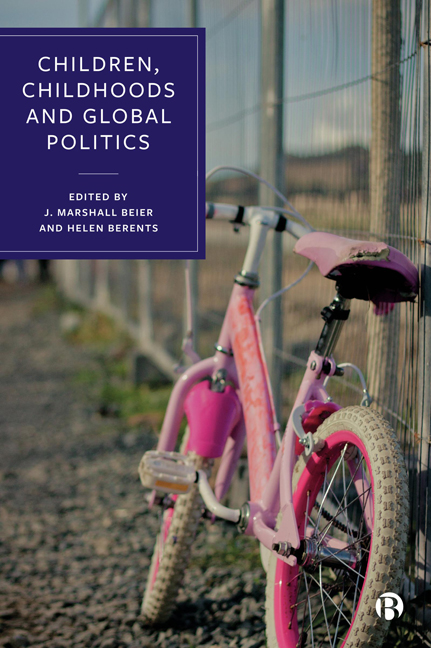6 - The Representative Breakthrough? Children and Youth Representation in the Global Governance of Migration
Published online by Cambridge University Press: 03 April 2024
Summary
Introduction
Recent decades have demonstrated an unprecedented institutionalization and mainstreaming of children and youth participation in international decision-making processes (Holzscheiter et al, 2019; Kwon, 2019; Knappe and Smith, 2021). In the UN system, children and youth have been identified as one of the ‘major groups’ (United Nations, 1992) whose participation is critical for effective and just global governance of sustainable development. As a result, we have witnessed a significant growth in the organization of youth constituencies, working groups for children and youth, child rights strategies, and youth forums in a wide range of areas such as climate, peace and security, health, and migration (UNICEF, 2014; United Nations, 2018; Holzscheiter and Pantzerhielm, 2023). The development follows a broader shift in international politics, from nation-state-centred negotiations to the opening up of global institutions to include actors such as NGOs, philanthropies, cities, businesses, and experts to tackle some of the most pressing global issues of our time (Tallberg et al, 2013). This is also the case in the global governance of migration (Schierup et al, 2018). In a time when global migration is reaching unprecedented heights and states of the Global North are trending towards restrictive border regimes, international organizations like the UN and the International Organization for Migration are seeking to find durable solutions to ‘safe, orderly and regular’ migration through the inclusion of new stakeholders.
However, while the inclusion of children and youth as political actors in international politics has certainly enabled new inclusionary forms of global political representation, the institutionalization of young people’s participation remains contested. Scholars have critically noted that the mainstreaming and implementation of children’s rights and their participation do not necessarily mean that the life situation of children and youth is becoming better or that young people’s experiences of injustices are being recognized (Reynaert et al, 2012; Josefsson and Wall, 2020). It has been pointed to how the institutionalization of young people’s rights and voices in decision-making processes has also become an instrument to govern, regulate, and control children and youth (Prout, 2003; James, 2007; Holzscheiter et al, 2019; Kwon, 2019). Further, the massive mobilizations of children and youth against global injustices of racism, climate change, labour, oppressive policing, and restrictive migration policy seriously contest the ways in which they are politically represented at local, national, and global levels (Cummings, 2020; Josefsson and Wall, 2020; Bessant, 2021; Josefsson et al, 2023).
- Type
- Chapter
- Information
- Children, Childhoods, and Global Politics , pp. 87 - 100Publisher: Bristol University PressPrint publication year: 2023



